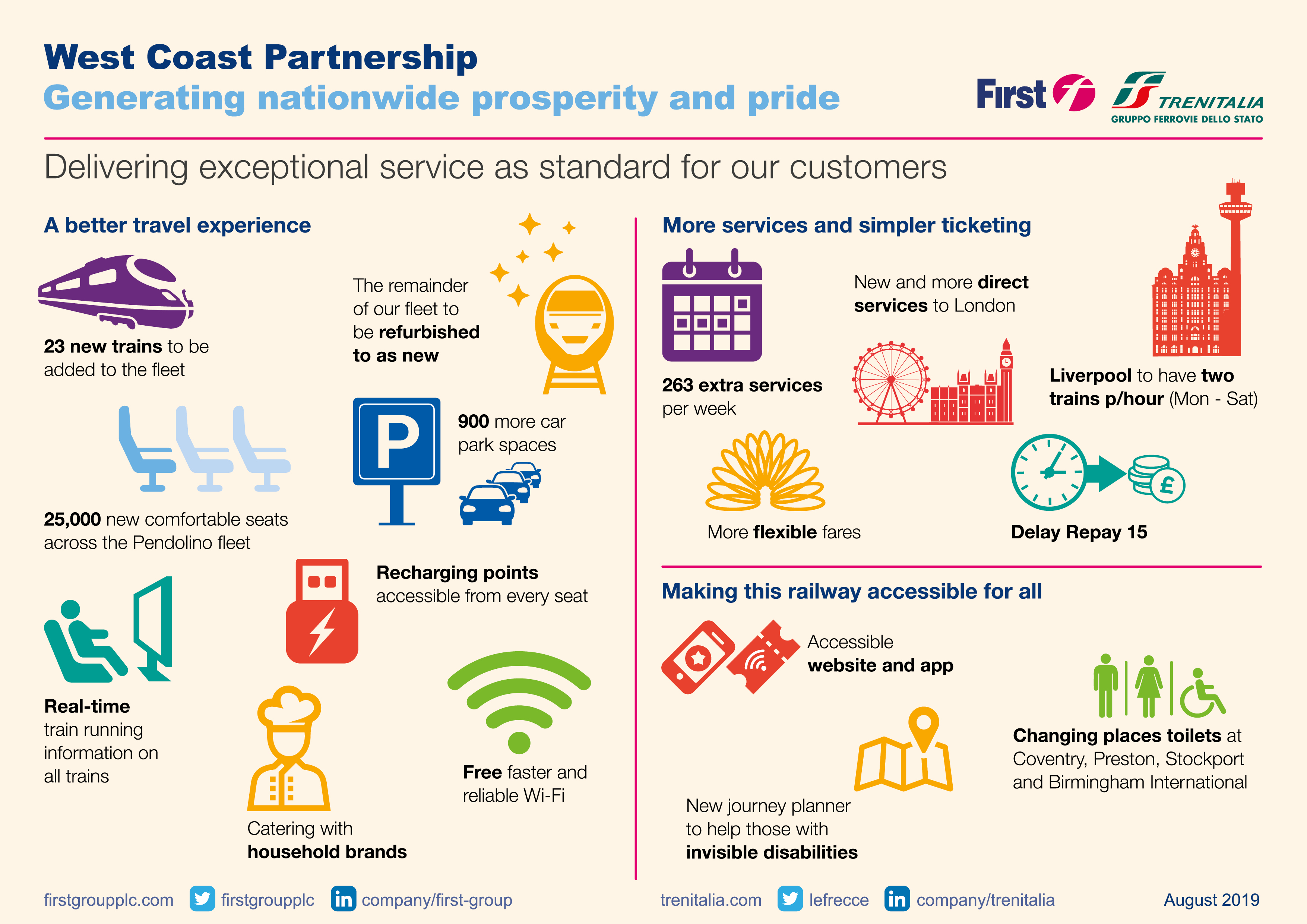Just as premium economy has taken off in the skies, Avanti West Coast, has revealed plans to introduce a similar service onboard its own trains along the UK's West Coast mainline from the second half of 2020. The company, has just succeeded Virgin Trains to run the key transportation route that links London to the northwest cities of Liverpool and Manchester, and up to Glasgow in Scotland.
It plans to completely refurbish 56 Pendolino trains to "as new" condition, with "25,000 new seats, more reliable Wi-Fi, and power sockets" for all passengers. By 2022, it plans to offer 263 extra train services every week, while a fleet of new, state of the art intercity trains will replace the current Voyager trains. It also promises a more simplified fare structure, improved on-board catering and compensation if trains are delayed by 15 minutes.

The process of refurbishing and rebranding the former Virgin Trains Pendolino train stock is what has given it the opportunity to think a little differently about what the travelling public want from the railways. As airlines have proven, the concept of a premium economy offer can work if packaged and price correctly. There is obvious concern that it could see first class passengers book downwards, but airlines have been largely successful in minimising this inconvenience.
Avanti West Coast have not formally unveiled the new concept as yet, except to confirm that customers will enjoy larger seats, faster WiFi and snacks. In standard class there is a basic buy-onboard concept, while in first class passengers are offered a full menu with meals and choice of alcoholic or soft beverages.
"We know there is going to be three classes. It is going to be a first class, a premium economy-type style and economy," confirms Phil Whittingham, managing director of Avanti West Coast. The former Virgin Trains boss confirms initial plans include a "bigger seat, better wi-fi and snacks rather than a meal".
It appears that price has been among the main drivers behind the idea. First Group, which jointly owns the franchise with Italian firm Trenitalia, says the change in policy is "about balancing and being flexible within the train".
"Obviously first class can be quite expensive, so there are different price points between standard class and first class and it is about seeing if we can offer a more flexible offering that suits more price points," adds its chief executive, Matthew Gregory.
The idea of the new offering had been mooted often during the 2010s, but while it was talked about by train operators and Department for Transport officials, it has remained off the official agenda until now. It certainly represents a significant step that could see further adoption across the UK on longer-distance routes.
Avanti West Coast will have taken considerable guidance from joint-owner Trenitalia which already offers multiple classes of travel on its own system. Others have also successfully deployed more than two-class systems on the railways, most notably Eurostar which offers a Standard Premier ticket that appears to be very similar to what Avanti West Coast plans.
The big difference in the train versus aeroplane debate is that premium economy on airlines has been most successfully deployed on longer routes where passengers are more happy to pay a little more for the extra comfort. It has not been as widely adopted on short-haul services where passengers are less willing to pay over shorter journeys.
There is also the big danger that with travelling over shorter durations on rail, many corporate travel policies could be reduced from first to this class of travel. That is why Avanti West Coast will need to ensure there are clear differences in price and product. It is a very, very fine balancing act.